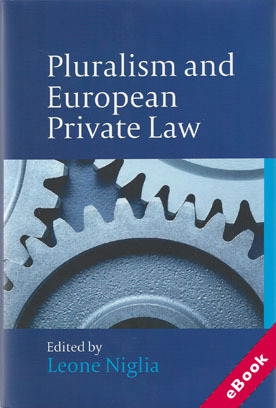
The device(s) you use to access the eBook content must be authorized with an Adobe ID before you download the product otherwise it will fail to register correctly.
For further information see https://www.wildy.com/ebook-formats
Once the order is confirmed an automated e-mail will be sent to you to allow you to download the eBook.
All eBooks are supplied firm sale and cannot be returned. If you believe there is a fault with your eBook then contact us on ebooks@wildy.com and we will help in resolving the issue. This does not affect your statutory rights.
European private law has hitherto tended to be conceptualised firmly around ideas of unity and harmony. Yet the discourse within other areas of European law, notably constitutional law scholarship, visibly adopts pluralist perspectives.
This book seeks to bridge the gap between 'public' and 'private' law by looking at European private law from various pluralist positions and by investigating old and new ways in which to understand legal pluralism in general. It fills a gap in the wide literature on legal pluralism, as the first book entirely dedicated to offering an insight into legal pluralism from the vantage point of the private law domain.
The book addresses critically issues such as what pluralism really means in private law and what conceptions of pluralism it embodies, including discussion about the outer boundaries of any of the pluralist understandings. Contributions address comparative, critical, historical, theoretical and normative aspects. The book provides an opportunity to engage innovatively with problematic conceptual issues which inform the work of European private law scholars, including the debate on the Common Frame of Reference Project of the European Commission.